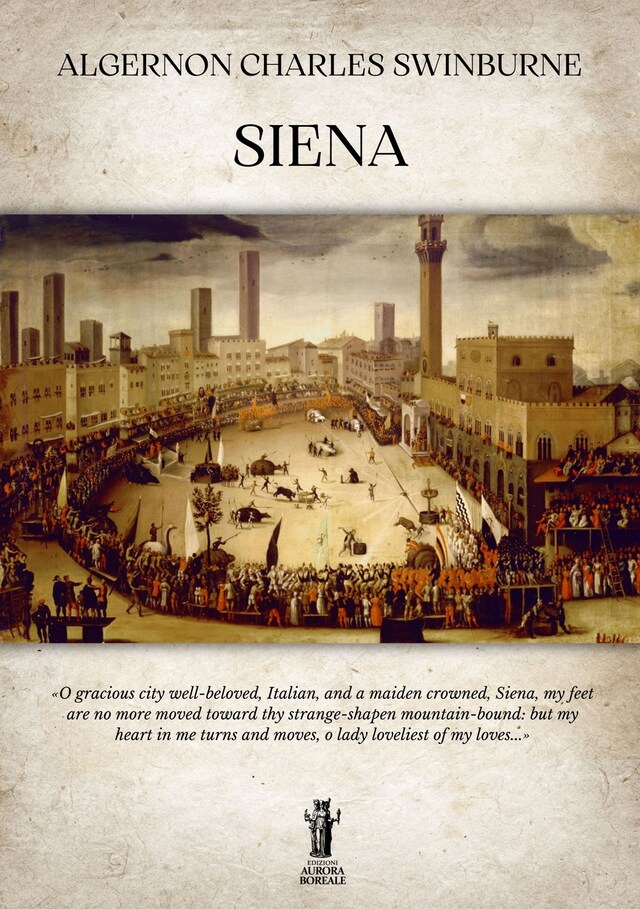
Siena
Descrizione del libro
Algernon Charles Swinburne (1837-1909) was a British poet, writer and playwright of the Victorian era. Active in the aesthetic circle, romantic and then decadent, he met Oscar Wilde and other famous intellectuals and artists of the same environment, attending the Pre-Raphaelite Brotherhood and becoming a friend of the poet, artist and initiate Dante Gabriel Rossetti. Eccentric personality, with a strong taste for artistic provocation, inspired by writers such as the Marquis de Sade, Percy Bysshe Shelley and Charles Baudelaire, his poetry was very controversial, due to its themes (sadomasochism, suicide, lesbianism, irreligiosity); his lyrics are also characterized by original versification solutions, by the cult of paganism and the idealized Middle Ages, and of absolute freedom. From 1903 to 1909 he was nominated for the Nobel Prize for Literature. With Alfred Edward Housman, Robert Browning, Alfred Tennyson, Ernest Dowson and William Butler Yeats, he is considered one of the most representative lyric poets of Victorian literature. He died in Putney (London) on April 10, 1909.
Swinburne’s literary output is vast and includes poems, plays, songs, novels, short stories and numerous essays on literary criticism. The poem Siena, dedicated to the splendid and historic Tuscan city, was first published in Lippincott’s Magazine in June 1868 and then included by Swinburne in 1871 in his book Songs before Sunrise, dedicated to the Italian revolutionary and Freemason Giuseppe Mazzini.
 Algernon Charles Swinburne
Algernon Charles Swinburne 7 Pagine
7 PagineCategorie:
Formato:
Lingue:
Inglese